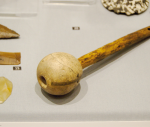You are here
Visions of grandeur wreck legitimate rights
Jan 18,2017 - Last updated at Jan 18,2017
So far this year, there have been two major efforts to promote political settlements in the Eastern Mediterranean region: the Geneva negotiations between Greek and Turkish Cypriots, and the Paris gathering dealing with Palestine and Israel.
While in Geneva between January 9 and 12, the Cypriot leaders were meant to agree to a framework for the reunification of the island, divided in 1974 after a Greek military junta mounted a failed coup and Turkey occupied the northern 36 per cent of the island.
The Paris event on January 14 reinforced international support for the redivision of Palestine so that native Palestinians could form their own state in territories occupied by Israel in 1967: East Jerusalem, the West Bank and Gaza.
The 70 countries participating sought to send a message to incoming US President Donald Trump that he cannot forget that the “two-state solution” is the policy of the international community, which also opposes his proposal to transfer the US embassy in Israel from Tel Aviv to Jerusalem, as this would finish off talks with the Palestinians.
The Geneva talks failed because the Cypriots could not agree on key issues and Turkey’s President Recep Tayyip Erdogan intervened, insisting that the Turkish army, which has 30,000 troops in northern Cyprus, would never leave the island, the main demand of the Greek Cypriots.
The Paris event was dismissed by Israeli Prime Minister Benjamin Netanyahu, who refused to attend and accused France of staging a “rigged conference” designed to adopt “anti-Israel stances” in the wake of the passage by the UN Security Council of a resolution demanding a halt to Israeli colonisation of East Jerusalem and the West Bank, and reaffirming that Israeli colonies are illegal under international law.
It is significant that the Greek foreign minister, who, along with his Turkish and British counterparts, was criticised when he reminded those gathered in Geneva that Turkish troop withdrawal was the main issue for Cyprus because Ankara’s 30,000 troops maintain the occupation of the northern part of the island.
The occupation is also solidified by the presence of 150,000-160,000 mainland Turkish settlers who now equal in number the native Turkish Cypriots.
In spite of the Turkish troops and settlers, mentioning the nearly 43-year-old occupation is simply not done.
By contrast, the international community continually calls on Israel to end its nearly 50-year occupation, stop colonisation and agree to the “two state solution”.
Israel has settled some 400,000 of its citizens in the West Bank and 300,000 in and around East Jerusalem. Thousands of Israeli troops are deployed in the West Bank, which has been under military administration since the 1967 occupation.
The common aim of Turkey and Israel is to make it impossible to make a deal with either Greek Cypriots or Palestinians.
Although well aware of this, neither country is sanctioned by the international community.
Turkey and Israel are special countries: NATO member Turkey because of its geographic location between Europe, the Middle East and Asia, and Israel due to its political clout in the West.
Erdogan is the decider on Cyprus. Mustafa Akinci, the negotiator for the Turkish Cypriot side, is not independent thanks to the occupation.
Although he genuinely seeks to reach a negotiated deal with Cyprus President Nicos Anastassiades for the reunification of Cyprus, Akinci has to constantly refer to Erdogan, who just might accept a cosmetic confederation rather than a federation of Greek and Turkish Cypriot cantons in an independent Cyprus.
Erdogan’s aim is to retain and legitimise Turkey’s influence in the north by giving it confederal cover. Both foreign and Turkish commentators argue that Erdogan dreams of the revival of Turkish political influence in areas which once belonged to the Ottoman Empire, although even he might admit he cannot re-establish direct Ottoman rule over Cyprus and former Arab domains.
He also has the ambition of ruling Turkey until 2029. To achieve this objective, he has extracted from the Turkish parliament approval for constitutional amendments transforming the country’s system of governance from a parliamentary to a presidential system and making himself executive president.
Parliament has still to pass the amendments in a second reading before the package is presented in a referendum to voters.
Since Erdogan is highly popular with his political base, he counts on success.
Like Erdogan, Israeli Prime Minister Benjamin Netanyahu is an ambitious man.
While he renders lip service to the “two-state solution”, he said on March 16, 2015: “No Palestinian state on my watch.”
He argued that such a state would fall under the rule of radical Muslims who would attack Israel. These statements, however, do not reflect his true motive.
He is determined to fulfil the Zionist plan for “greater Israel”, formulated at the end of the 19th century, for the take-over of the whole of Palestine.
Like all his predecessors, Netanyahu has given conquest by colonisation priority over any other Israeli endeavour, often at considerable economic and social cost to the country and, in recent years, at increasingly high political cost to Israel’s global standing.
Netanyahu would like to stay in power at least until 2019, when he could say he is the longest serving Israeli prime minister, exceeding the length of time the country was ruled by founding father David Ben Gurion.
Tragically, Greek and Turkish Cypriots may be denied independence in a federation, while Palestinians will be refused independence in their own state because Erdogan and Netanyahu have visions of grandeur.












